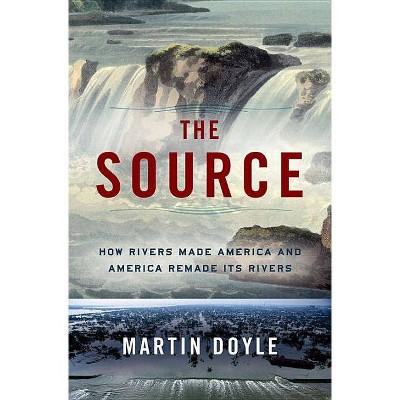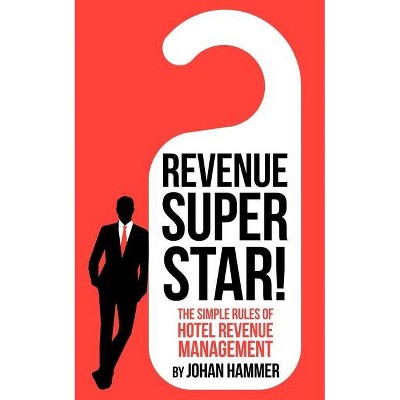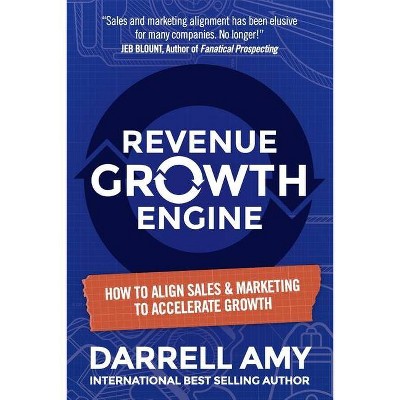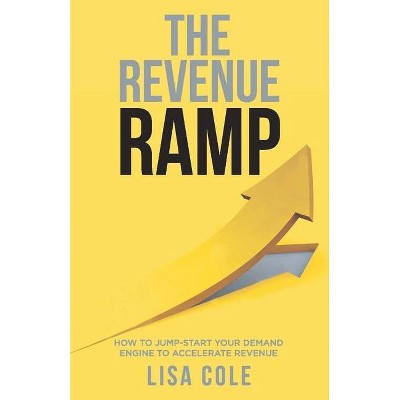Streams of Revenue - by Rebecca Lave & Martin Doyle (Paperback)
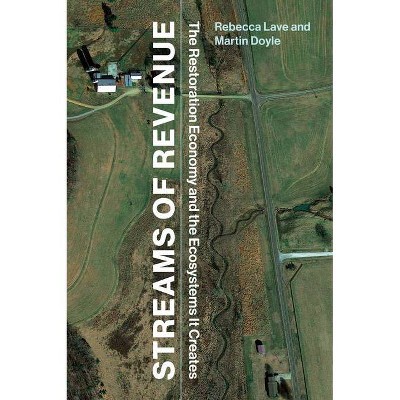
Similar Products
Products of same category from the store
AllProduct info
<p/><br></br><p><b> About the Book </b></p></br></br> "One of the most influential, and perhaps surprising,developments in environmental policy in recent decades is the idea that we can protect the environment from the negative impacts of economic development by making environmental protection itself more economic. The goal is to reduce environmental harm not by preventing it, but by pricing it. Using stream mitigation banking, that is the market for rivers and streams under Section 404 of the US Clean Water Act, as a case, Lave and Doyle explain where market-based environmental management approaches came from, how they work in practice, and what they do on ground"<p/><br></br><p><b> Book Synopsis </b></p></br></br><b>An analysis of stream mitigation banking and the challenges of implementing market-based approaches to environmental conservation.</b><p>Market-based approaches to environmental conservation have been increasingly prevalent since the early 1990s. The goal of these markets is to reduce environmental harm not by preventing it, but by pricing it. A housing development on land threaded with streams, for example, can divert them into underground pipes if the developer pays to restore streams elsewhere. But does this increasingly common approach actually improve environmental well-being? In <i>Streams of Revenue</i>, Rebecca Lave and Martin Doyle answer this question by analyzing the history, implementation, and environmental outcomes of one of these markets: stream mitigation banking.</p><p>In stream mitigation banking, an entrepreneur speculatively restores a stream, generating "stream credits" that can be purchased by a developer to fulfill regulatory requirements of the Clean Water Act. Tracing mitigation banking from conceptual beginnings to implementation, the authors find that in practice it is very difficult to establish equivalence between the ecosystems harmed and those that are restored, and to cope with the many sources of uncertainty that make positive restoration outcomes unlikely. Lave and Doyle argue that market-based approaches have failed to deliver on conservation goals and call for a radical reconfiguration of the process.</p><p/><br></br><p><b> Review Quotes </b></p></br></br><br>Ripping open the ever-expanding black box of environmental markets, mitigation banking, and restoration, Lave and Doyle educate and entertain. Revealing the convoluted process of market-based attempts to protect nature, this is a must-read for those who love or study the environment -- especially rivers and streams. <b> - Margaret Palmer, Distinguished University Professor, University of Maryland, College Park, and Director, National Socio-Environmental Synthesis Center </b> <p/> Lave and Doyle unravel the complex mitigation paradigm and bring us to a critical choice, a fork in the road. The path we choose may very well determine the fate of our rivers. <b> - Peter Skidmore, Walton Family Foundation </b> <p/> Lave and Doyle's meticulous empirical and field study of market-based habitat offset mitigation programs convincingly demonstrates how regulatory goals and metrics believed to support good restoration policies can actually drive mitigation entrepreneurs in counterproductive directions. The evidence presented and alternatives proposed in <i>Streams of Revenue</i> make a compelling case for change. <b> - J.B. Ruhl, David Daniels Allen Distinguished Chair in Law and Co-Director, Energy, Environment, and Land Use Program, Vanderbilt University Law School </b> <p/> <i>Streams of Revenue</i> explores the tenuous relationship between the power of market-based approaches and achievement of environmental goals. Lave and Doyle effectively show how environmental strategies are handled, how they often fail, and why all of this matters to the future of our fragile ecosystems. <b> - Eran Ben-Joseph, Professor of Landscape Architecture and Urban Planning, Department of Urban Studies and Planning, MIT </b><br><p/><br></br><p><b> About the Author </b></p></br></br>Rebecca Lave is Professor and Chair of the Department of Geography at Indiana University. She is the author of F<i>ields and Streams: Stream Restoration, Neoliberalism, and the Future of Environmental Science</i>. <p/>Martin Doyle is Professor of River Systems Science and Policy and the author of <i>The Source: How Rivers Made America and America Remade Its Rivers</i>.
Price History
Cheapest price in the interval: 25.49 on November 6, 2021
Most expensive price in the interval: 25.49 on February 4, 2022
Price Archive shows prices from various stores, lets you see history and find the cheapest. There is no actual sale on the website. For all support, inquiry and suggestion messages communication@pricearchive.us


